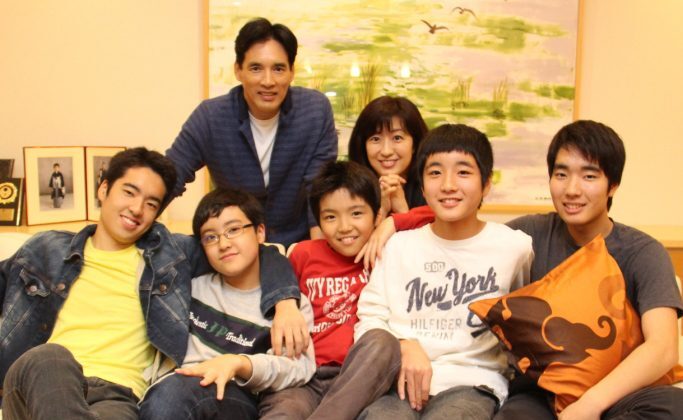Yoshito Hori, president of GLOBIS University, managing partner of GLOBIS Capital Partners, shares his views from an entrepreneur’s perspective.
I run a business that employs 400 people, but I make a point of getting home to have dinner with my family at least four times per week.
Why?
It all started eight years ago at New Year when the second of my five sons ordered me to stop staying out late for work and have dinner with him and his brothers instead.
We had just launched a new family tradition: on New Year’s Day everyone gathers around my PC and the children tell me and my wife how they want us to change in the upcoming year—“Don’t be so strict!”; “Take us snowboarding more often!”—before setting themselves their own goals for the year.
On the whole, these goals are quite simple—things like swimming a certain distance or attaining a certain rank in the board game Go. As the children list their goals, I input them into the PC to create an “official record.”
I think of this as applying the principles of Management By Objective (MBO) to family life.
It can be remarkably effective.
I’m speaking from personal experience. After my son insisted on us eating together as a family more often, I set myself that simple numerical target: to eat dinner at home at least four times per week, every week of the year.
That may sound easy, but believe me, it isn’t!
Whenever I go abroad for business, I immediately fall into deficit. A week-long stay at the World Economic Forum in Davos in Switzerland, for example, immediately puts my credit at minus four. To achieve my self-set objective, I then have to eat at home not four but five times a week for the next four weeks!
Even when I’m in Japan, achieving my objective isn’t that easy. As the head of a business school with five domestic campuses and managing partner of a venture capital company, there’s plenty to take me out in the evening—or away from Tokyo altogether.
Since the most effective form of time management is to be ruthless about deciding what NOT to do, I completely eliminated corporate entertainment and dinner meetings from my schedule to better safeguard the family dinner hour from 6.30 to 7.30 p.m. Also, if I ever have to give a seminar or lecture in the evening, I only do so after having eaten at home first.
Recently, I have even started giving little educational talks on topical subjects at the family dinner table. This may make me sound a bit of a domestic tyrant like Captain Von Trapp in The Sound of Music but my boys, aged between 10 and 18, genuinely enjoy our discussions.
Like all young people, they are fascinated by the world around them and have a sponge-like ability to soak up information. Japanese school, however, provides little opportunity to engage with current affairs. As a result, my boys are very happy to pitch in when we debate weighty issues like the rise of artificial intelligence, the Trans-Pacific Partnership free-trade agreement (TPP), the changing of Japan’s pacifist constitution, or the discovery of gravitational waves.
All in all, our family life changed for the better thanks to my second son forcing me to set myself a clear objective.
The dynamics of management by objective are the same in any organization, whether a family of seven or a company of several hundred.
I was applying management by objective to the businesses I run long before I brought them into our family life.
In my company, each employee has to set themselves from three to five personal objectives at the start of the year. Then, at the end of every quarter, they have a one-on-one meeting with their boss to get feedback on how successfully they are achieving their self-set objectives.
What I like about management by objective is that there’s no coercion involved; no one is telling anyone else what to do. Setting clear objectives for themselves enables people to get a clearer idea of their own motivations and desires. Sharing those objectives with other people then makes them part of a system or framework.
Let’s jump back to my dinner-at-home-four-times-a-week story, so I can explain exactly what I like about MBO in a family context.
Firstly, my son and I came up with the idea together, so the whole thing is consensual. Secondly, by sharing my objective with my children and my wife, I subjected myself to external pressure in the form of their expectations. (Crucially, though, it’s an enjoyable—not a stressful—pressure and as a result tends to yields positive results for everyone.) Thirdly, setting myself a clear numerical goal makes it easy for me to measure and monitor progress.
That’s why management by objective works so well both in the office and at home.
As you can see, I’m an MBO “true believer.”
How about you?
Are you an MBO fan? Have you ever tried applying any management philosophies to your family life? Did it work out as well for you as it did for us?
Let me know.



